第18章
YES, this property would suit him; it would suit Amy.It was near town; it was not far from Major Falconer's.He could build his house on the hill-top where he was lying.At the foot of it, out of its limestone caverns, swelled a bountiful spring.As he listened he could hear the water of the branch that ran winding away from it toward the Elkhorn.That would be a pleasant sound when he sat with her in their doorway of summer evenings.On that southern slope he would plant his peach orchard, and he would have a vineyard.On this side Amy could have her garden, have her flowers.Sloping down from the front of the house to the branch would be their lawn, after he had cleared away everything but a few of the noblest old trees: under one of them, covered with a vine that fell in long green cascades from its summit to the ground, he would arrange a wild-grape swing for her, to make good the loss of the one she now had a" Major Falconer's.
Thus, out of one detail after another, he constructed the whole vision of the future, with the swiftness of desire, the unerring thoughtfulness of love; and, having transformed the wilderness into his home, he feasted on his banquet of ideas, his rich red wine of hopes and plans.
One of the subtlest, most saddening effects of the entire absence of possessions is the inevitable shrinkage of nature that must be undergone by those who have nothing to own.When a man, by some misfortune, has suddenly suffered the loss of his hands, much of the bewilderment and consternation that quickly follow have their origin in the thought that he never again shall be able to grasp.To his astonishment, he finds that no small part of his range of mental activity and sense of power was involved in that exercise alone.He has not lost merely his hands; much of his inner being has been stricken into disuse.
But the hand itself is only the rudest type of the universal necessity that pervades us to take hold.The body is furnished with two; the mind, the heart, the spirit--who shall number the invisible, the countless hands of these? All growth, all strength, all uplift, all power to rise in the world and to remain arisen, comes from the myriad hold we have taken upon higher surrounding realities.
Some time, wandering in a thinned wood, you may have happened upon an old vine, the seed of which had long ago been dropped and had sprouted in an open spot where there was no timber.Every May, in response to Nature's joyful bidding that it yet shall rise, the vine has loosed the thousand tendrils of its hope, those long, green, delicate fingers searching the empty air.Every December you may see these turned stiff and brown, and wound about themselves like spirals or knotted like the claw of a frozen bird.Year after year the vine has grown only at the head, remaining empty-handed; and the head itself, not being lifted always higher by anything the hands have seized, has but moved hither and thither, back and forth, like the head of a wounded snake in a path.Thus every summer you may see the vine, fallen back and coiled upon itself, and piled up before you like a low green mound, its own tomb; in winter a black heap, its own ruins.
So, it often is with the poorest, who live on at the head, remaining empty-handed; fallen in and coiled back upon themselves, their own inescapable tombs, their own unavertible ruins.